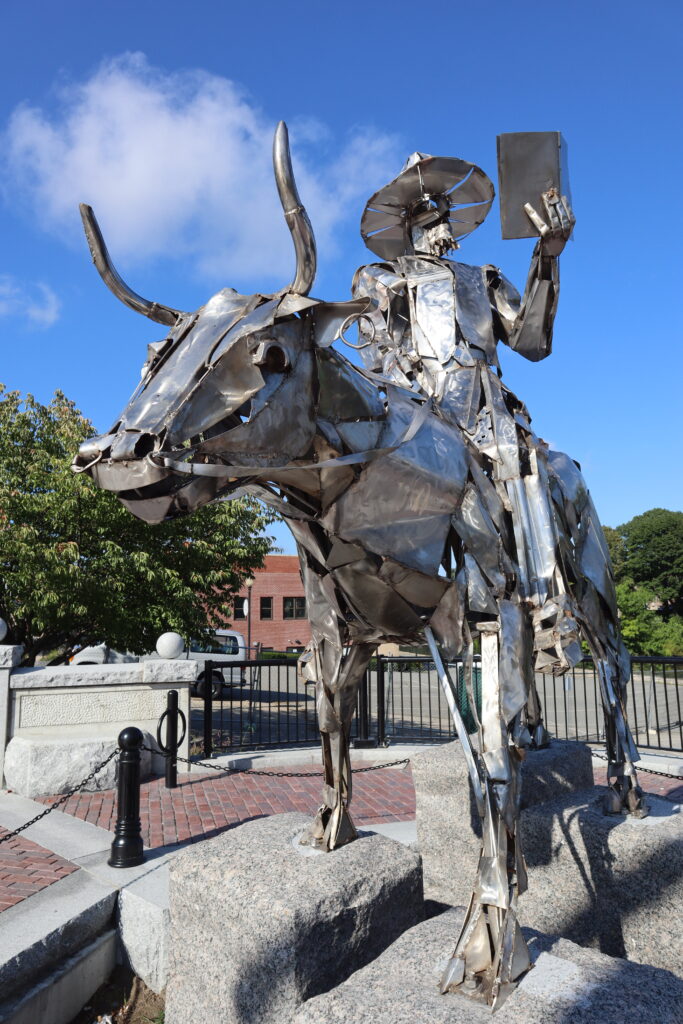
On Indigenous People’s Day, an alternative to the official Columbus Day holiday on October 11, 2021, a few dozen attendees at Veterans Memorial Park in Pawtucket protested the recently erected stainless steel statue of William Blackstone, who is primarily remembered because the Blackstone River and Blackstone Valley were named for him.
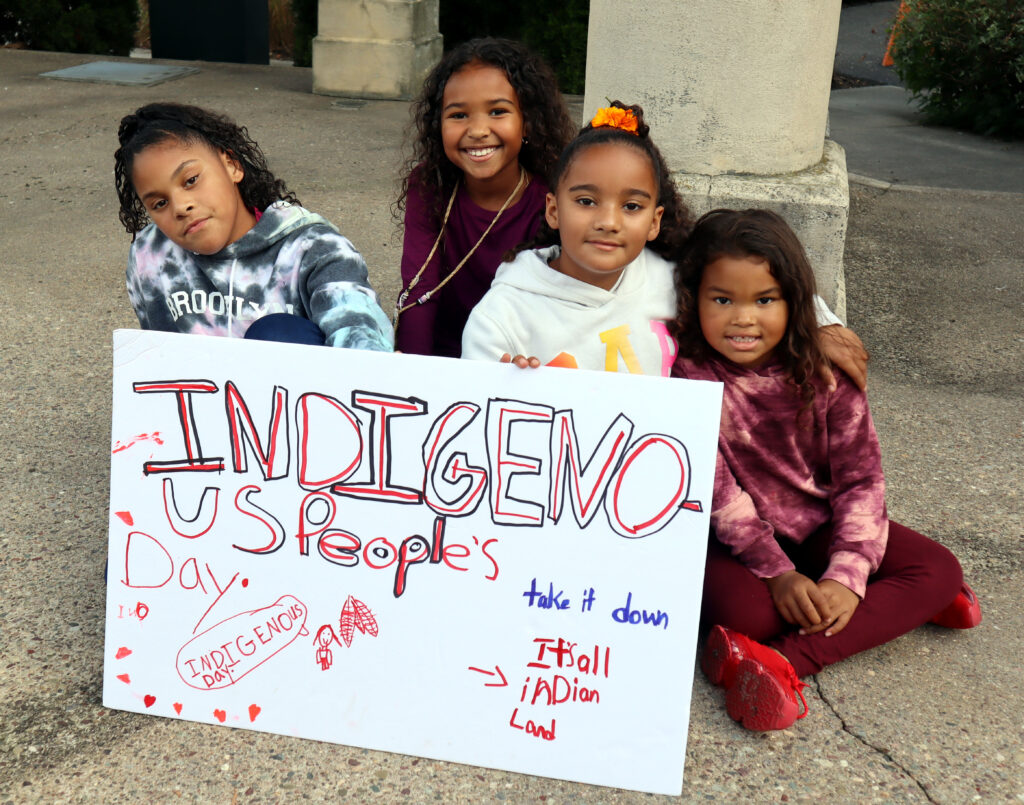
In a speaking program that lasted about two hours, many speakers expressed objections to the statue and demanded it be taken down. (Full audio available here: motifri.com/wp-content/uploads/2021/10/blackstone-audio.mp3)
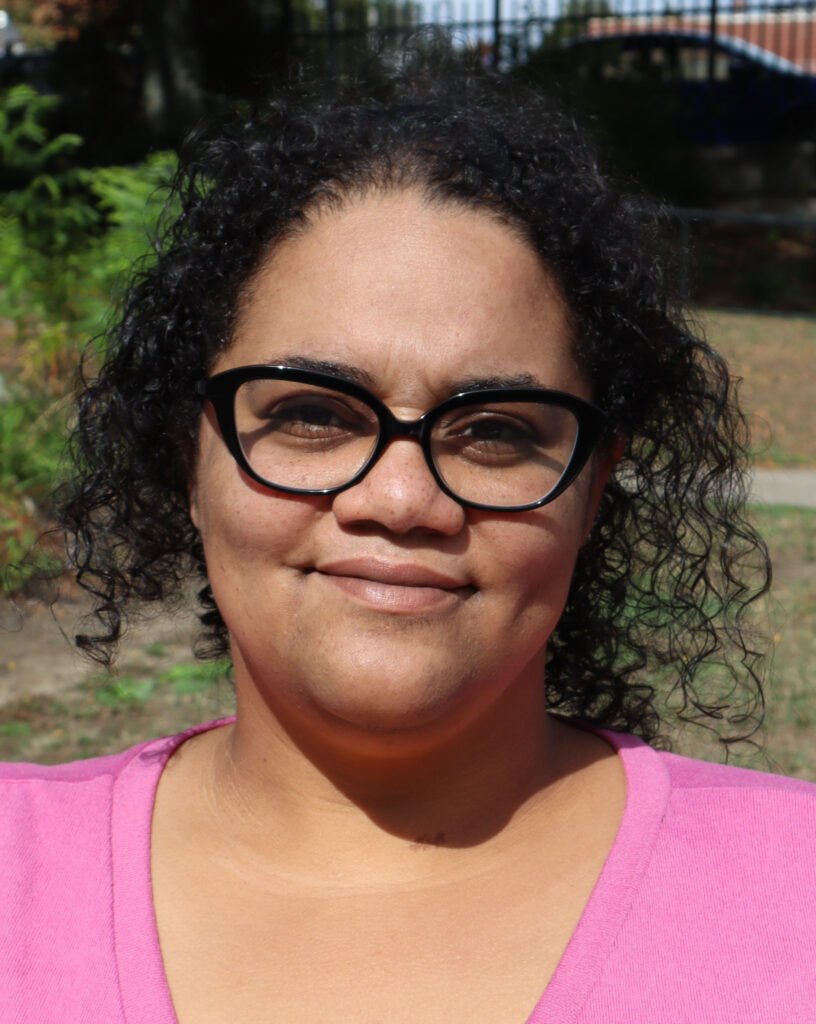
Melissa DaRosa, an at-large member of the Pawtucket City Council, attended the protest, she told me, “to stand with the Narragansett Indian tribe and to learn more about what this monument signifies… some people are saying this is capturing a beautiful history but for some that history is less beautiful.” I asked her, “What’s your objection specifically to the Blackstone statue?” She replied, “Would we put up a statue of Hitler?”
But Blackstone was far different from Hitler. As the marker at Blackstone Memorial Park near his burial site in Cumberland notes, he was “founder of the town of Boston, and the first white settler in Rhode Island.” He was otherwise unremarkable, even forgettable: an Anglican clergyman born in England in 1595, he sailed to North America in 1623 and settled what is now Boston. He had a falling out with the Puritans (who were anti-Anglican) that led him to relocate to what is now Cumberland, Rhode Island, in 1635, a year before Roger Williams settled in Providence. He had neither slaves nor servants, cultivated new species of fruits and vegetables, lived alone in the solitude of the woods with a large library of books until he married at the age of 64, had a son, and died at the age of 80 in 1675 – about a month before the outbreak of King Philip’s War that would mark the utter collapse of relations between the settlers and the indigenous Native Americans.
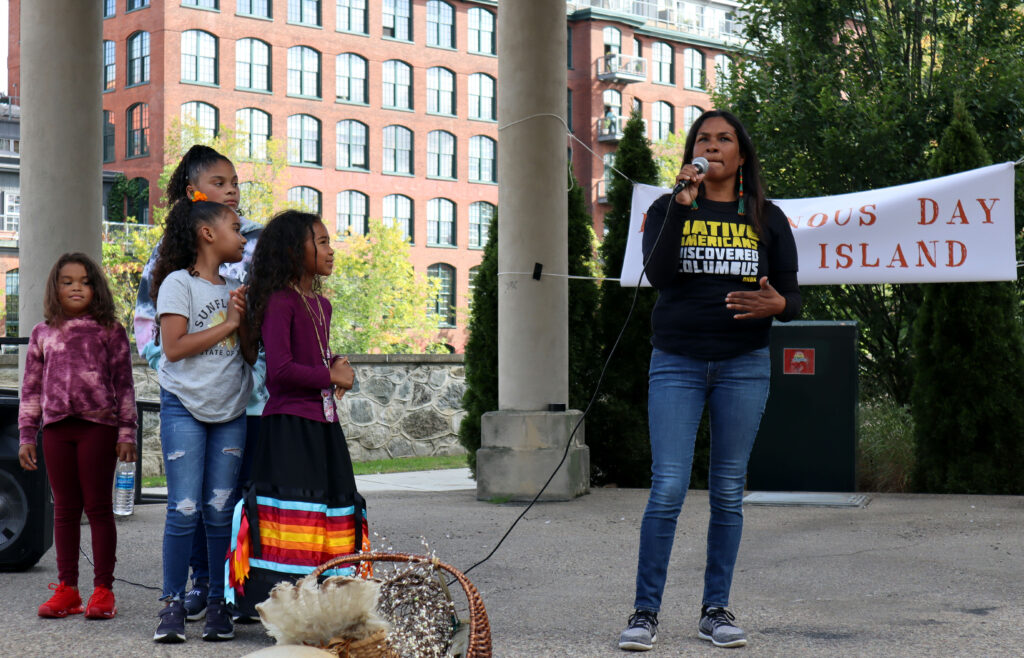
Bella Noka, a member of the Narragansett Tribe who organized the protest, said she wanted the statue taken down. “If I were to be raped, and I was to be violated in the worst way possible, do you think I want to walk by that same man every single day and look him in the face, and people praise and see a statue 14 feet high, looking down at me every day? No, I would not,” she said. “To think that they can even raise a voice on what this man has done, the atrocities that they have done. He’s not the only one: I’m not blaming just him. There were hundreds of them, there were thousands of William Blackstone… He’s just another face. But you think because somebody wears a collar he was a righteous person? Well, ask all the altar boys how great the priests were.”
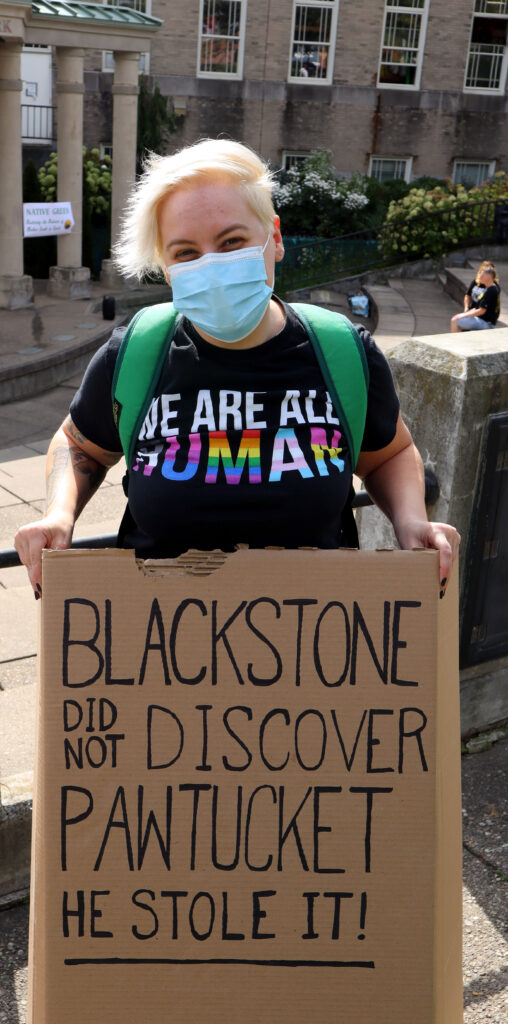
(Photo: Michael Bilow)
In her view, Blackstone bore responsibility for the entire settler program. “Blackstone is the one who afforded that [mindset] that you can come in and take over our land. He died with 200 acres. How did he get those 200 acres? Did we just give it over to him because he’s a jolly good old friend? No, it was taken. We don’t give up land and we didn’t have a value on land, because land does not belong to people. It belongs to Mother Earth as the creator. We are to protect her. We are to give to her because she gives so much back to us. So, for them to come and have ownership and parcel things off, in the name of greed, or their right to do that is a shame on them.”
Historically, Blackstone had good personal relations with Narragansett chiefs Miantonomi and Canonchet and with Wampanoag chiefs Massasoit and Metacomet. Both Blackstone and Williams opposed the “doctrine of discovery,” the legal justification that European settlers could claim land without the consent of the indigenous aboriginal residents; both argued that proper title to land required treaties with and payments to Native Americans. (See “Providence Plantations: The Real History”, by Michael Bilow, Jul 13, 2020.)
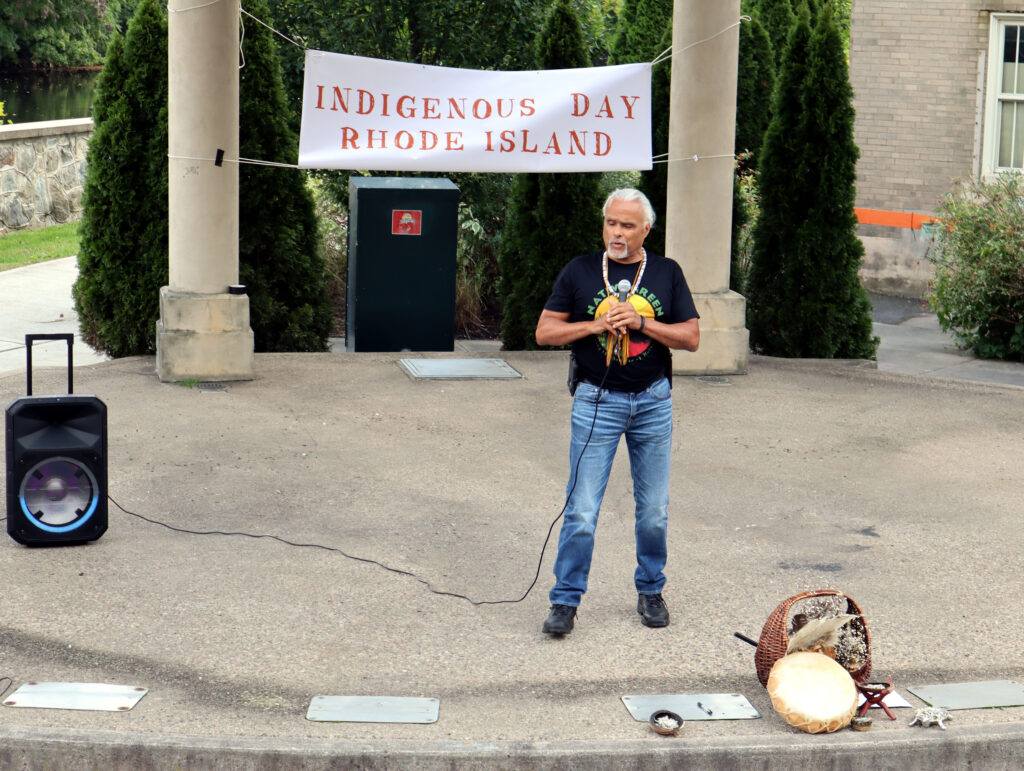
It was Randy Noka, the husband of Bella Noka, who in a wide-ranging 40-minute interview asked what seemed the most resonant question: “Why put up a statue about him, if he was such a recluse then what the hell’s he doing being recognized like that for?” I answered, “My guess, and I don’t know this, I think the city was just totally blindsided by it, they figured the river is named after him, the valley is named after him, his name’s on everything.” Noka pointed out that these names replaced Indian names: “It was the Pawtucket River, Pawtucket Valley. Whoever changed the name… if he was such a weirdo out in the wilderness and kissing trees and whatever, then why the hell, why change the river? What did he do, even for his own kind?”
I asked, “Are you saying that being the first white settler in the land, he doesn’t deserve a statute for that?” Noka answered, “Oh, he’s the first one, so we’ll put up an ugly – no disrespect to the artist – an ugly monument, rename a river, rename a valley, whatever, because he was the first white guy. How prejudiced is that? How about the first Black guy that came here? They don’t know that person because he was probably brought from Africa as a slave.” Eventually, Noka summarized his perspective: “He went over in the woods, lived by himself, but happened to be the first white guy, so let’s put up a statue, rename a valley and a river. Well, that’s even more insulting!”

